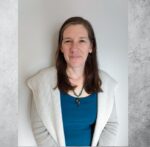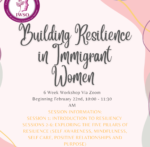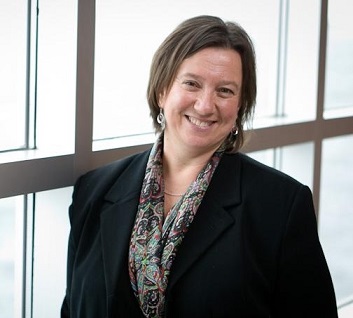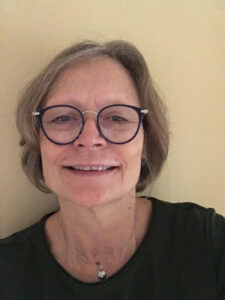Meet Ada Tony-Ilebor, our newest columnist for Connections, IWSO’s quarterly newsletter
I was born in Abia State, in the Southeast of Nigeria. I come from a family of 10 and grew up in the city of Lagos, Nigeria.
Six years ago, I made one of the toughest decisions I’ve ever had to make. I left my life, and my 12-year banking industry career in Nigeria behind to start a new life in Canada.
As a single mother with two young boys, making the choice to immigrate to Canada as a Graduate student wasn’t one I took lightly. It meant I had to leave my sons behind in hopes of giving them more opportunities then I had. Thankfully, my children joined me after two years and at which time I’d been able to finish my master’s degree in Finance from Saint Mary’s University in Halifax Nova Scotia and had started my first full time job in Canada.
Any parent will know what I mean when I say that my children’s well-being has always been my top priority. It’s truly at the center of everything I do. Wanting the very best for them has always kept me focused on planning for the future and working hard to achieve my goals. When I arrived in Canada with no friends or family, there were a few things I knew I needed to stay focused on:
- Stay diligent and finish my studies
- Make connections with people and learn more about Canadian culture
- Stick to my plan to manage my competing finances including supporting my children in Nigeria
Between expenses I had here in Canada, and sending money back to my children, there wasn’t always much left over at the end of the month. Budgeting helped me to stay organized. Along with that, I’ve truly tried to leverage every single opportunity that came my way that aligned with my personal and professional goals.
My first job in Canada was as a part time Customer Service Representative with UPS at a store in Halifax. Although it was a part time job and paid minimum wage, I was very excited when I got hired. All I could think of was the opportunity it provided to interact with my community, which aligns well with my goal to network with people and to understand Canadian Culture. I was dedicated to the job and gave it my best.
In no time, I’d made great friends and became acquainted with people in my community. By giving me the support and encouragement I needed, these people became lifelong friends and have been instrumental in getting me to where I am today. Making connections, taking time to listen to other people’s stories and learning from them helped forge my path.
After graduation, I worked with a company called CITCO for eight months before joining TD in 2018 as a Branch Manager Associate. I have been with TD four years and currently lead a team of financial experts at the TD branch at TD Place Lansdowne, here in Ottawa.
Something I had to learn early on was how to navigate the Canadian financial system as a newcomer. Now that I’m four years into my career with TD, it’s very rewarding to be able to help other newcomers learn the same information.
At most Canadian banks, basic banking products have similar features, but each bank has slightly different offers.
Here are the three most basic products for you to get acquainted with:
Chequing Accounts:
Most banks have a variety of chequing accounts. They differ in monthly fees, number of transactions and minimum balances. If you are looking to waive monthly fees, some chequing accounts offer more benefits, such as free bank drafts and cheque books. These accounts cost a bit more and may require larger minimum balances to waive monthly fees. Chequing accounts are great for day-to-day transactions and usually pay no interest on the account balance.
Savings accounts:
There are different types of savings accounts and they are typically used for short term savings and emergency funds. Few transactions are allowed in a savings account per month, so it is not recommended for day-to-day transactions and interest is paid on daily balances in a savings account.
Debit card
The debit card is usually free and a convenient way to spend cashless from your chequing or savings account for your purchases as well as withdrawing money from Automated Teller Machines (ATM’s). It differs from the credit card, because you spend directly from the balances in your bank account.
Credit card
The credit card is a great and convenient way to make purchases and build credit in Canada if used properly. There are a wide variety of credit cards that offer cash back abd travel rewards. Some have annual fees while some do not. When you get a credit card, it comes with a set credit limit, and you won’t be able to spend beyond that credit limit. With a credit card, you can make purchases, in store or online now and pay later. But be warned that if you do not pay off your balance at the end of month, interest will be owed on the balance.
Stay tuned for more on how to navigate the Canadian banking system as a newcomer. My next article will talk about how to protect yourself against fraud.
Immigrant Women Services Ottawa
219 Argyle Avenue, Suite 400
Ottawa, Ontario
K2P 2H4
Tel: 613-729-3145
Fax: 613-729-9308







